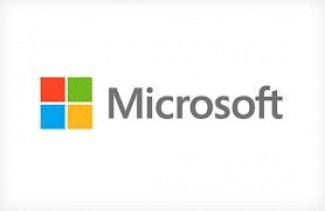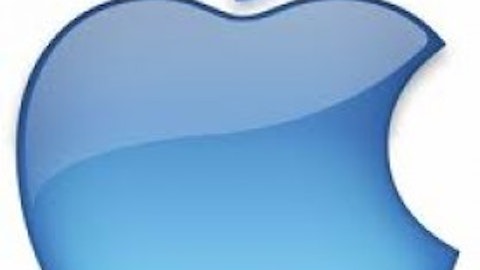
Less than a week ago, Microsoft Corporation (NASDAQ:MSFT) cut the price of the Surface RT to $350 (a 30% discount). This comes just weeks after Dell Inc. (NASDAQ:DELL) made a similar move with its own Windows RT device.
At this point, it seems as though Windows RT has been nothing short of a colossal failure for Microsoft Corporation (NASDAQ:MSFT), drawing into question the long-term viability of the Windows operating system.
Windows RT vs Windows 8
It’s important to note that Windows RT is not the same as Windows 8. Although they look the same from an interface perspective, they run very different software.
The key difference is that Windows RT is designed to run on ARM-based chips (the sort found in tablets and smartphones), while Windows 8 runs on the traditional x86 processors made by Intel Corporation (NASDAQ:INTC) and Advanced Micro Devices, Inc. (NYSE:AMD). Windows 8, then, is capable of running just about any PC software made in the last 15 years; by contrast, Windows RT is restricted to mobile apps, the apps you find in the Windows app store.
And therein lies Windows RT’s fundamental problem: the lack of apps. On a pure numbers basis, Microsoft’s app store is far behind both Google Inc (NASDAQ:GOOG)’s Play and Apple Inc. (NASDAQ:AAPL)’s iTunes. More importantly, it lacks a number of key apps like HBOGO, LinkedIn Corp (NYSE:LNKD), and even Facebook Inc (NASDAQ:FB).
Admittedly, the Facebook Inc (NASDAQ:FB) app is on its way. But with Windows RT nine months old at this point, the fact that there’s still no official Facebook Inc (NASDAQ:FB) app illustrates just how weak developer support is for the platform.
Can a price cut save Windows RT?
Will consumers forgive Windows RT’s lack of apps if it means they get a far cheaper device? Possibly, but I doubt it.
Even at $350, the Surface RT is still more expensive than smaller tablets like the Nexus 7 ($250), Kindle Fire HD ($200), and most notably, Apple Inc. (NASDAQ:AAPL)’s iPad Mini. The fact is, even $350 may be too much for a tablet. Estimates suggest that Apple Inc. (NASDAQ:AAPL)’s iPad Mini may now account for 60% of the iPads sold, meaning that the market for full-sized tablets (like the Surface RT) isn’t particularly large.
Microsoft Corporation (NASDAQ:MSFT) has run an aggressive ad campaign pitting its own Surface RT and Dell’s tablet against the iPad, and while they could spark some consumer interest, I think it’s most telling to observe the actions of Microsoft Corporation (NASDAQ:MSFT)’s other hardware partners.
Both Hewlett-Packard Company (NYSE:HPQ) and Samsung Electronics Co., Ltd. (KRX:005930) appear to have a very low opinion of Windows RT — neither company offers a Windows RT device in the US.
Instead, both companies have opted to go with Google Inc (NASDAQ:GOOG)’s Android on their tablets, while also offering some hybrid tablet/Ultrabooks running full Windows 8. Interestingly, Samsung Electronics Co., Ltd. (KRX:005930) is actually selling a hybrid tablet that runs both full Windows 8 and Android.
As I’ve previously written, this demonstrates just how much faith Samsung Electronics Co., Ltd. (KRX:005930) has in the Windows app store — that is to say, no faith at all. By incorporating Android apps into the Windows experience, Samsung Electronics Co., Ltd. (KRX:005930) is compensating for Microsoft Corporation (NASDAQ:MSFT)’s mobile weakness.
As for Hewlett-Packard Company (NYSE:HPQ), its move away from Windows shows just how eager the company is to shed its image as a Windows OEM. Short seller Jim Chanos targeted Hewlett-Packard Company (NYSE:HPQ) last year, arguing that the company’s reliance on the PC market would be its undoing.





